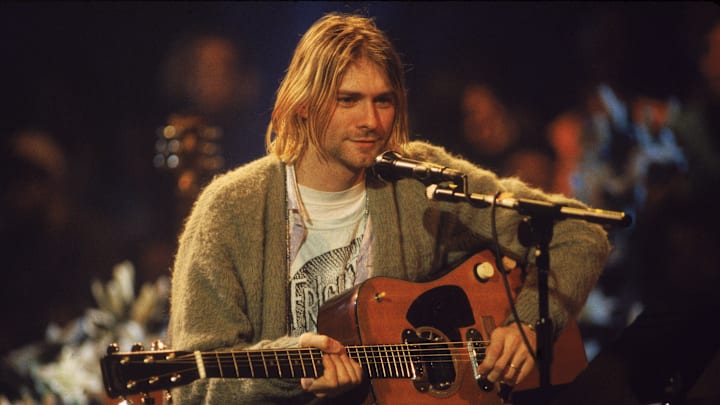Three decades have passed since the untimely demise of Kurt Cobain, the iconic frontman of Nirvana, whose life ended tragically at the age of 27. In a somber event that shook the music world, Cobain took his own life with a self-inflicted gunshot wound at his residence in Seattle on April 5, 1994 (that is unless you believe any one of the various conspiracy theories out there). His body remained undiscovered for three harrowing days.
His suicide note read: "I don’t have the passion anymore, and so remember, it’s better to burn out than to fade away," using a lyric from Neil Young’s song "My My, Hey Hey (Out of the Blue)."
In the lead-up to this devastating event, Cobain grappled with substance abuse, including a reported overdose on sleeping pills and alcohol. His wife, Courtney Love, recounted instances where he expressed thoughts of self-harm. Despite efforts to intervene, including an arranged intervention and a brief stint in a detox facility in Los Angeles starting on March 30, 1994, Cobain left against medical advice and ultimately met his tragic fate upon returning to Seattle.
Did fear of 'selling out' contribute to Kurt Cobain's death?
As American Songwriter recently noted in an article, the narrative takes a poignant turn when considering Nirvana's slated headline performance at the 1994 Lollapalooza Festival. As the torchbearers of grunge and alternative rock, Nirvana's involvement in such a mainstream event posed a moral dilemma for Cobain. In fact, back in 2021, Josh Bergamin wrote in the Overland Literary Journal that Cobain was a "martyr of authenticity."
On April 6, just before news of Cobain's passing emerged, Nirvana made the unprecedented decision to withdraw from the tour, citing Cobain's health concerns. The canceled appearance at Lollapalooza is explored in depth in the recent docuseries Lolla: The Story of Lollapalooza, which premiered at the 2024 Sundance Film Festival. This comprehensive three-part series delves into the cultural significance of the festival and its impact on the music industry, offering insights into Nirvana's would-be pivotal role in the festival and Cobain's struggles.
Meanwhile, another documentary by the BBC titled Moments That Shook Music: Kurt Cobain, and more specifically about Kurt's death and its impact on the world recently premiered, and the director John Osborne explained: "We want viewers to witness the impact firsthand, without any embellishments."
What could have been
Cobain's aversion to what he perceived as "selling out" by participating in Lollapalooza is elucidated in the Lolla documentary. He viewed the festival as emblematic of alternative rock's assimilation into mainstream culture — a development he vehemently opposed (Kurt famously went for a more "lo-fI" and experimental vibe on Nirvana's In Utero, after feeling the breakthrough success of Nevermind was too mainstream). Interviews with festival organizers and insiders shed light on Cobain's internal conflict and his fear of losing authenticity in the face of commercial success.
A clip from the docuseries features Lollapalooza co-founder Don Muller reflecting on Nirvana's decision: "We were planning the festival, and Nirvana thought about it but decided that they couldn’t do it. Kurt couldn’t do it." John Rubeli, responsible for booking acts on Lollapalooza's second stage during the mid-'90s, elaborates on Cobain's apprehensions, citing his reluctance to conform to mainstream expectations.
Despite Cobain's reservations, archival footage from February 1994 captures him confirming Nirvana's intended participation in Lollapalooza—a poignant reminder of the path not taken. Amidst the tribulations, Courtney Love, Cobain's widow, made poignant appearances during the tour, paying homage to her late husband by performing songs from her band Hole and inviting moments of reflection for the audience.
Also, for quite some time, Foo Fighters frontman and former Nirvana drummer Dave Grohl was bombarded with questions about which Foo Fighters songs were about Kurt's death. Fame does put people in strange, and sometimes undesirable situations, and Kurt Cobain is one of the most famous examples of an artist grappling with success, as well as assorted personal demons and health problems. Those with enough conscience do miss him, wish he had stuck with it (even if he would have "sold out"), and most certainly created more music that made the world at least somewhat more compelling and honest.
